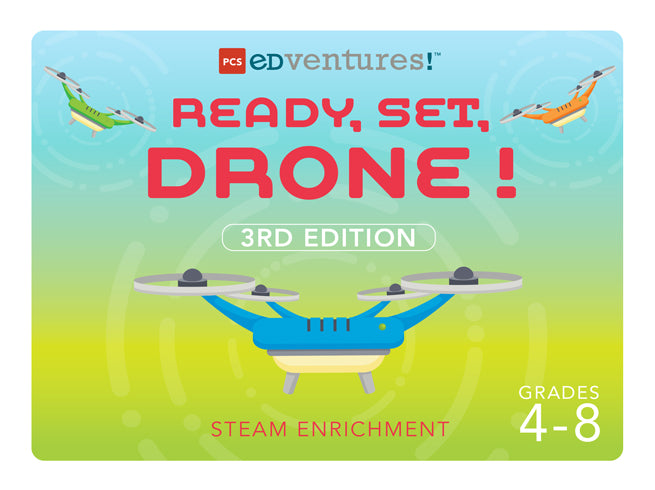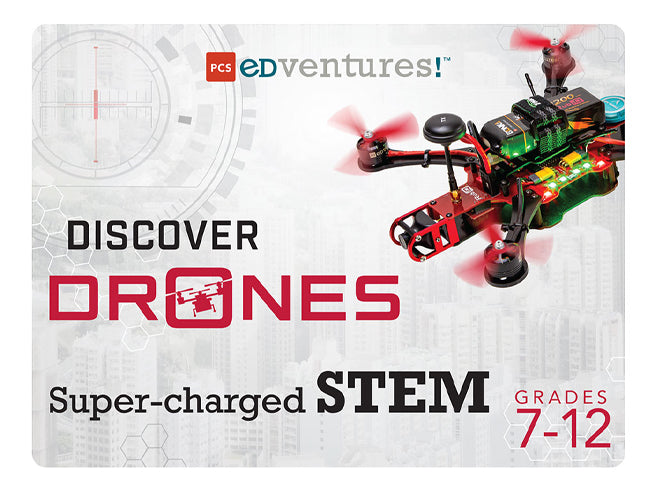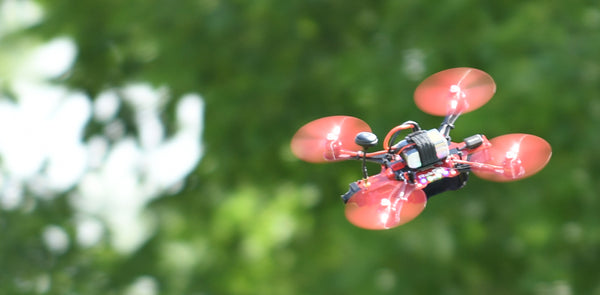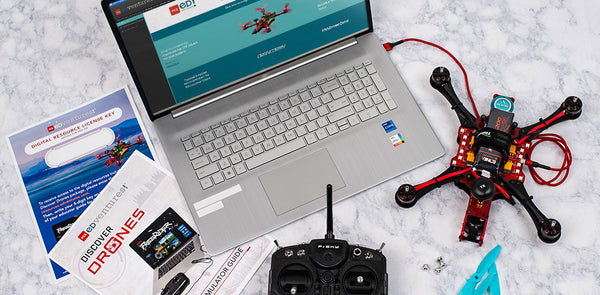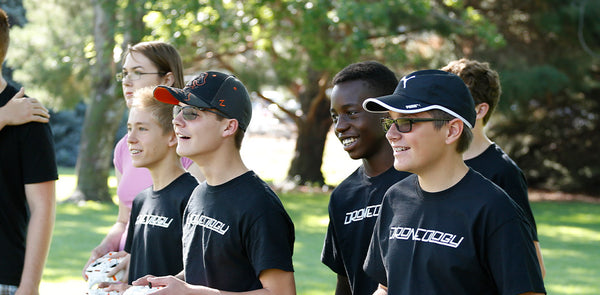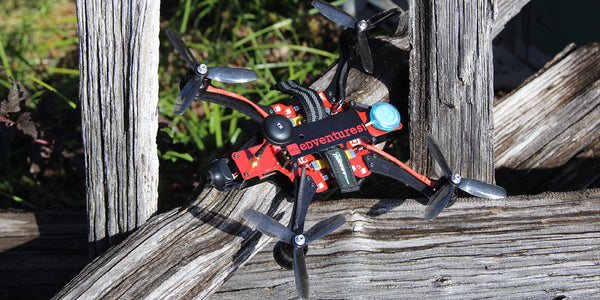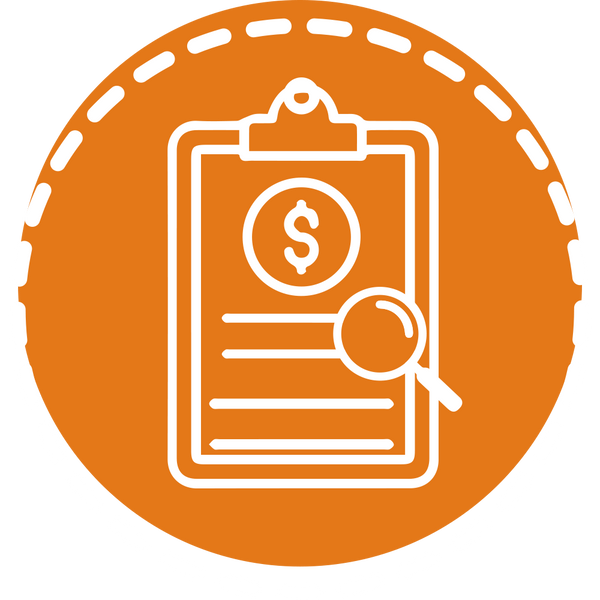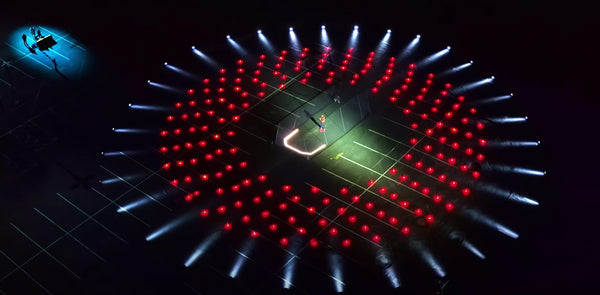
Drone Careers: Live Events
In recent years, drones have proven themselves to be wonderful tools for creative expression. From filming live events in dynamic ways to being incorporated into the performance itself, UAVs open up countless possibilities for live entertainment!
Keep reading to discover ways drones are being used for live shows, as well as how educators can set their learners up for success in this growing field.
Dynamic Live Broadcasts:
Thanks to their agility and speed, drones are becoming more and more popular in videography. Featured films such as Michael Bay’s Ambulance and Netflix’s Red Notice are among the first to extensively use FPV (First-Person View) drone footage to create more dynamic action scenes than ever before. (Read more about drones in filmmaking here!)
Beyond the silver screen, drone footage can also make live events more dynamic and exciting for viewers. Check out these examples of how drones can be used in sports and other television broadcasting:
We’ve seen the dizzying footage that drones can capture. But did you know that drones can also put on their very own performances?
Drone Light Shows:
With applications for both entertainment and marketing, drone light shows are sure to dazzle any audience! These choreographed light shows are fully-automated. A team of engineers and pilots program the drones ahead of time, then execute their code on the day of the event.
Check out some examples of amazing drone light shows:
Drone light shows are held for events as big as the Olympics, but these agile flying robots can do a lot more than simply shine lights!
Drone Performances:
Now we’ve seen light shows performed entirely by programmed drones… but what about performing alongside people? Groups such as Verity Studios work with human performers to bring the wonder of drones to their shows.
We see a bright future ahead for drones in the performing arts.
How to Perform with Drones:
Are your students interested in performing with drones? Here’s how to set them up for success in many different UAV career paths:
- Learn Drone Regulations and How to Fly
- Part 107 Certification and Insurance
- Get Performing!
- Consider a Degree in Unmanned Aerial Systems
1. Learn Drone Regulations and How to Fly
All great drone pilots start by simply learning how to get off the ground. There are many courses out there that introduce learners to all areas of drone flight, from safety and legal regulations to flying manually and even coding autonomous flight missions.
For educational packages for upper-elementary, middle and high school learning environments, complete with drone equipment, curriculum and educator training, check out PCS Edventures’ popular indoor and outdoor drone programs:
2. Part 107 Certification and Insurance
New drone pilots aspiring to make a profession out of their flying skills will be required to get FAA Part 107 certified. This certification applies to all pilots performing commercial drone flights. PCS Edventures’ drone programs can get your students started learning about drones and exploring potential careers, and our partners at UAV Coach have their licensing needs covered!
Additionally, many employers require their drone pilots to be insured. Educators can learn more about drone insurance in our article, Do I Need Drone Insurance? Know the Facts!
3. Get Performing!
Once a pilot has acquired the training and equipment needed, it’s time to get performing! Whether it be FPV footage or fully-automated drone performances, building up a portfolio is the best way to prove your skills as a drone pilot and performer.
Even while learning how to fly, encourage students to save footage of their projects to reference later. Looking back on old projects is a great way to see how far you’ve come as a pilot!
4. Consider a Degree
While most drone jobs don’t require a full degree, further education can give new pilots the additional skills they need to incorporate drones into their chosen field.
Some universities offer drone-related degrees, such as Unmanned Aircraft Systems Science or Unmanned and Autonomous Systems Engineering. Any degree related to aircraft or electrical engineering will help students innovate on the drones themselves and hone their skills on the piloting side.
For a more artistic path, students may want to pursue degrees in the performing arts or music. For something a little more technical, consider video editing or graphic design. Many new performers will find it beneficial to understand post-production, publishing and marketing to help them get their name out there.
Related Resources:
Interested in the educational applications of drones? Learn more about incorporating UAVs into your learning environment at the links below:
- Blog: Drone Careers: Filmmaking & Cinematography
- Blog: Drone Careers: Emergency Services
- Blog: Drone Careers: Exciting Trades
- Webinar: The Best Drone for STEM Education
- Photo Gallery: STEM Educators Become Drone Designers
Ready to Start Your Drone Program?
PCS Edventures makes it easy for educators to get started with UAVs! From the basics of flight to choreographed drone performances, our Drone Collection includes indoor and outdoor programs that are perfect for many different learning environments.

